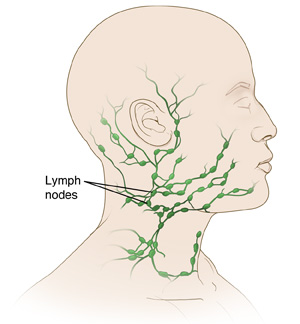Lymph Node Biopsy Test
Home |lymph node biopsy test
SERVICES
- Sonography
- Color Doppler
- Digital X-Ray
- Sonohsg
- USG Guided Interventions
- Obstetric
- 3D/4D
- Color 2D Echo Cardiography
- ECG
- PFT
- Blood Investigation
- Interventional Radiology
- FNAC Test
- NIPT Test
- Prostate biopsy test
- Abscess Drainage
- Breast biopsy test
- kidney biopsy test
- Liver biopsy test
- lymph node biopsy test
- Fetal Echo Test
- Fetal medicine

Lymph Node biopsy test in Kharghar
A lymph node biopsy is a medical procedure that involves removing a small piece of lymph node tissue for examination under a microscope. For individuals seeking a lymph node biopsy test in Kharghar, this procedure is crucial for diagnosing and understanding various conditions affecting the lymphatic system. Lymph nodes are small, bean-shaped organs that are part of the body’s immune system. They play a vital role in filtering out bacteria, viruses, and other harmful substances, helping to protect the body from infections and diseases.
There are several reasons why a lymph node biopsy might be recommended. One common reason is the presence of swollen lymph nodes. If a lymph node becomes persistently enlarged or tender without an obvious cause, a biopsy can provide insight into the underlying issue. Another important reason for performing a biopsy is to determine if cancer has spread to the lymph nodes. This is crucial for staging cancer and guiding treatment decisions. Additionally, a biopsy can help diagnose infections that may be affecting the lymph nodes, providing valuable information for appropriate treatment.
There are different types of lymph node biopsies, each serving specific diagnostic purposes. An excisional biopsy involves removing the entire lymph node for examination. This approach is often used when a more comprehensive analysis of the node is required. An incisional biopsy, on the other hand, involves removing only a portion of the lymph node. This method may be chosen if only a part of the node is needed for diagnosis. Fine-needle aspiration (FNA) is a less invasive technique where a thin needle is used to withdraw a small sample of cells from the lymph node. This method is particularly useful for obtaining a preliminary diagnosis.
The procedure typically begins with local anesthesia to numb the area, minimizing discomfort during the biopsy. The surgeon then removes the lymph node or a portion of it, depending on the type of biopsy performed. After the tissue is removed, the incision is closed with stitches. Recovery from a lymph node biopsy generally involves resting for a few days and managing any pain or discomfort with over-the-counter pain relievers. It’s also important to follow up with your doctor to discuss the biopsy results and any further steps required.
While a lymph node biopsy is generally safe, there are some risks involved. Minor bleeding is common, but severe bleeding is rare. There is also a small risk of infection at the biopsy site, and a small scar may remain after the procedure. Despite these risks, the advantages of a lymph node biopsy are significant. It provides accurate and definitive information about the cause of lymph node enlargement, whether it be cancer, infection, or other conditions. This information is crucial for cancer staging, treatment planning, and monitoring disease progression. Additionally, biopsy samples can contribute to research on lymph node diseases and cancer, further advancing medical knowledge and treatment options.
